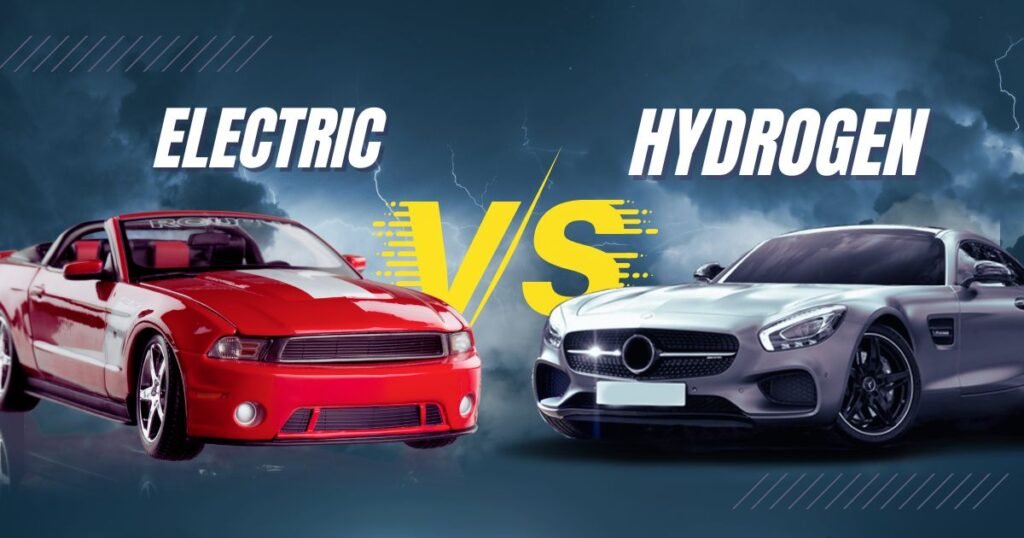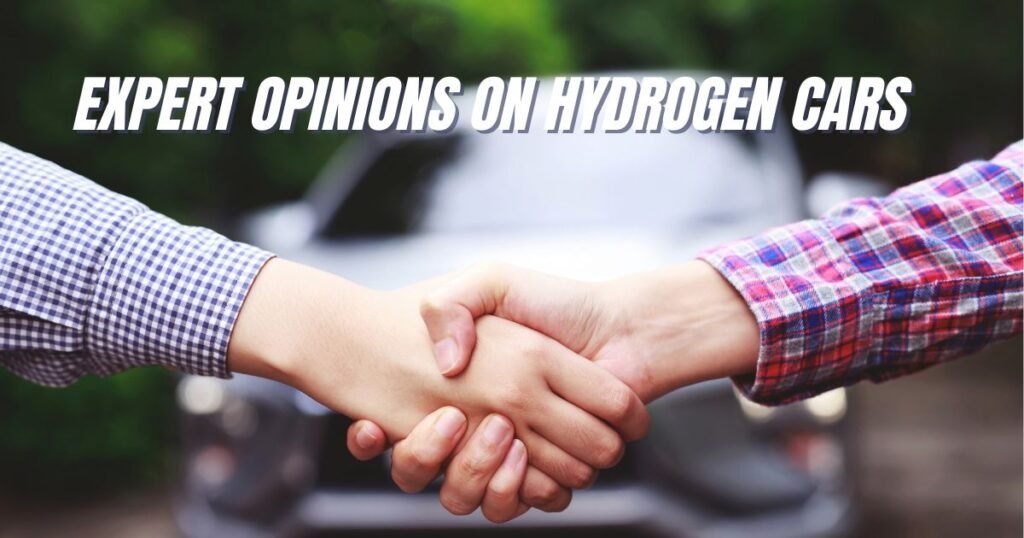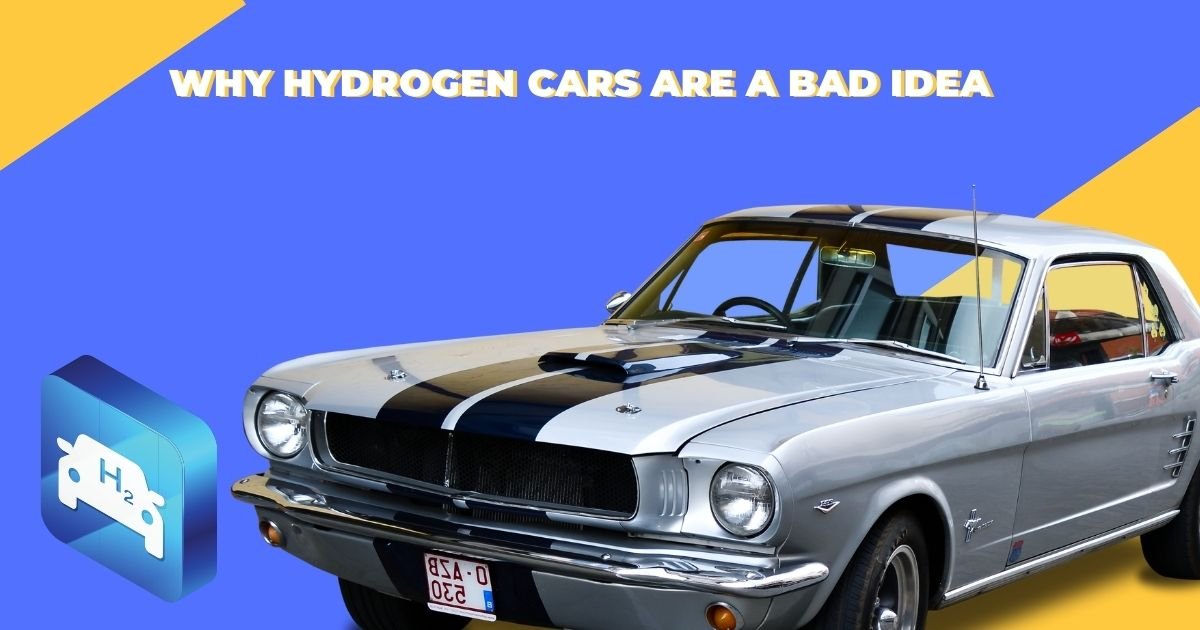Why hydrogen cars are a bad idea? Is a question stirring debates in the automotive world? As the global shift towards sustainable transportation gains momentum, the choice between hydrogen and electric cars has become a central point of discussion. In this article, we will dig into the key viewpoints that put forth the defense against hydrogen vehicles. From well-qualified conclusions and innovative bits of knowledge to advertise insights, go along with us as we investigate the convincing purposes for the incredulity encompassing hydrogen vehicles.
Whether you are a vehicle devotee or a supportability advocate, understanding these contentions is significant for exploring the developing scene of eco-friendly transportation. We should unwind the intricacies and gauge the proof to decide why, for some purposes, hydrogen vehicles may not be the promising arrangement they are frequently seen to be.
- Understanding the Technologies
- Pros and Cons of Electric Cars
- Cons of Electric Cars
- Pros and Cons of Hydrogen Cars
- Cons of Hydrogen Cars
- Differences between Hydrogen and Electric Cars
- Expert Opinions on Hydrogen Cars
- Market and Public Perception
- Comparative Sustainability
- Practical Considerations
- Conclusion
- FAQ about why hydrogen cars are a bad idea Why hydrogen is not the future?
Understanding the Technologies
What is an electric car and how does it work?
Electric cars, also known as battery electric vehicles (BEVs), run on a simple principle turning stored electrical energy into motion. Here’s the key when you plug an electric car into a charging station, the battery charges up. This charged-up energy powers an electric motor, moving the car. No fuel, no emissions it’s clean and straightforward. That’s why many folks are buzzing about electric cars.
What is a hydrogen car and how does it work?
Now, let’s talk about hydrogen cars, or hydrogen fuel cell vehicles. They work differently. It’s a bit like magic: you use electricity to split water into hydrogen and oxygen. This hydrogen gets stored in the car in high-pressure tanks. When you press the pedal, the stored hydrogen combines with oxygen in a fuel cell, creating electricity. This electricity then drives the electric motor, making the car go. Sounds clean, right? The only thing that comes out of this process is water vapor.
Understanding these technologies is crucial to figuring out why some folks think why hydrogen cars are a bad idea compared to electric cars. In the upcoming sections, we’ll dig into the good and not-so-good sides of each tech to see why hydrogen cars might not be winning the popularity race against their electric counterparts.
Pros and Cons of Electric Cars
Pros of Electric Cars
Environmentally Friendly
Electric cars are known for zero tailpipe emissions, contributing to cleaner air and reduced greenhouse gas emissions.
Lower Operating Costs
Electric vehicles generally have fewer moving parts, resulting in lower maintenance costs compared to traditional combustion engine cars.
Energy Efficiency
Electric motors are more efficient than internal combustion engines, meaning a higher percentage of the energy from the power source goes to propel the vehicle.
Instant Torque
Electric motors provide instant torque, delivering quick acceleration and a smooth driving experience.
Cons of Electric Cars
Limited Range
In spite of progressions, electric vehicles actually face range limits compared with traditional vehicles, making extremely long travel testing.
Charging Infrastructure
While improving, the charging framework for electric vehicles isn’t quite as broad as corner stores, causing worries about space for certain clients.
Pros and Cons of Hydrogen Cars
Pros of Hydrogen Cars
Quick Refueling
Hydrogen vehicles can be refueled in no time, like customary fuel vehicles, giving a fast circle back.
Longer Range
Hydrogen vehicles frequently boast a more extended driving reach compared with electric vehicles, tending to worries about restricted distance travel.
Zero Tailpipe Emissions
Like electric vehicles, hydrogen vehicles produce no discharges at the tailpipe, adding to a cleaner climate.
Cons of Hydrogen Cars
Limited Infrastructure
The framework for delivering, putting away, and assuming hydrogen isn’t quite as evolved as the electric charging organization, presenting difficulties for broad reception.
Energy Inefficiency
The method involved with delivering hydrogen can be energy-concentrated, influencing the general proficiency and natural advantages of hydrogen vehicles.
Understanding the benefits and downsides of both electric and hydrogen vehicles is essential for pursuing an educated choice. While electric cars have taken huge steps, especially as far as natural effect and cost-viability, hydrogen vehicles present remarkable difficulties connected with framework and energy proficiency. In the next sections, we will explore specific differences between hydrogen and electric cars to delve deeper into the why hydrogen cars are a bad idea argument.
Differences between Hydrogen and Electric Cars

When weighing the choice between hydrogen and electric cars, it’s essential to consider key differences that shape their practicality and impact on the environment.
Range
Electric Cars
While electric vehicle (EV) ranges are improving, they could miss the mark for certain clients, particularly on lengthy excursions.
Hydrogen Cars
Hydrogen cars frequently brag longer ranges, making them a more feasible choice for those with worries about running out of force during movement.
Refuelling
Electric Vehicles
Charging foundation is growing, yet the interaction can in any case take time, particularly with standard home chargers.
Hydrogen Vehicles
Refueling hydrogen vehicles is quicker, looking like the recognizable experience of refueling at a service station.
Refuelling Time
Electric Cars
Charging times vary, and fast chargers can still take a significant amount of time compared to traditional refuelling.
Hydrogen Cars
Hydrogen refuelling takes minutes, offering a quick turnaround similar to traditional combustion vehicles.
Environmental Impact
Electric Cars
Emit zero tailpipe emissions, but the overall environmental impact depends on the electricity source used for charging.
Hydrogen Cars
Additionally transmit zero tailpipe outflows, yet the development of hydrogen might include energy-escalated processes, affecting by and large supportability.
Efficiency
Electric Cars
Electric motors are highly efficient, converting a large portion of the energy from the power source into motion.
Hydrogen Cars
The process of producing, storing, and converting hydrogen into electricity can be less efficient compared to direct electric transmission.
Safety
Electric Cars
Batteries pose safety concerns, but advancements in technology continue to address and mitigate these risks.
Hydrogen Cars
Hydrogen has its safety challenges, being highly flammable, although advancements in storage and handling have improved safety measures.
Emissions
Electric Cars
Emit zero tailpipe emissions, but the overall carbon footprint depends on the energy mix used to generate electricity.
Hydrogen Cars
Zero tailpipe emissions, but the production of hydrogen may involve processes emitting greenhouse gases.
Costs
Electric Cars
Generally lower operating costs due to fewer moving parts and lower maintenance requirements.
Hydrogen Cars
Face challenges related to the high cost of hydrogen production, storage, and distribution.
Expert Opinions on Hydrogen Cars

Experts in the field provide valuable insights into the question of why hydrogen cars are a bad idea.
5 Reasons Why Hydrogen Cars Are Stupid
Not Currently Green
Discusses the environmental impact of hydrogen production.
The Process Is Inefficient
Explores the efficiency challenges in hydrogen production.
It’s Expensive
Sheds light on the cost-related concerns of hydrogen technology.
Energy Independence
Examines the challenges related to hydrogen as an energy source.
What About Refuelling and Range?
Addresses practical issues like refuelling time and range.
Professor’s Perspective
Delves into industry motivations and potential hindrances to the electrification movement.
Hydrogen Fuel Cell Expert Insights
Misconceptions of HFC Cars as a Bridge Technology Unravels common misunderstandings about hydrogen fuel cell cars.
Unveiling the Truth
Difficulties and Restrictions of HFC Innovation Investigates the specialized difficulties in hydrogen power module innovation.
Inherent Flaws and Criticisms
Why HFCs Miss the mark Contrasted with Battery Electric Vehicles thinks about the disadvantages of hydrogen vehicles against battery-electric vehicles.
Market and Public Perception
Understanding why hydrogen cars are not popular requires a closer look at market dynamics and public perception.
In spite of being promoted as a spotless and creative other option, hydrogen vehicles face difficulties in acquiring boundless fame. One critical component is the restricted accessibility of refueling foundation contrasted with electric charging stations. Thus, potential purchasers are stopped by the burden and vulnerability of refueling their hydrogen-fueled vehicles.
Additionally, the outcome of electric vehicles in the market has eclipsed hydrogen vehicles. Electric vehicles, with their rising reach, quicker charging abilities, and laid out foundation, have turned into the favored decision for naturally cognizant customers.
Public insight likewise assumes an essential part. The normal confusion that hydrogen vehicles are intricate, costly, and less pragmatic adds to their lower acknowledgment. In the accompanying areas, we will investigate explicit variables that have prompted the sluggish reception of hydrogen vehicles, revealing insight into the inquiry of why hydrogen cars are a bad idea in the eyes of consumers.
Comparative Sustainability
The debate between hydrogen cars vs electric cars which is more sustainable hinges on various environmental factors.
Environmental Impact
Electric vehicles, when accused of power from inexhaustible sources, can be unbelievably harmless to the ecosystem. Anyhow, the reliance on petroleum derivatives in specific districts can think twice about green certifications. Then again, hydrogen creation frequently depends on petroleum products, prompting worries about the general manageability of hydrogen vehicles.
Resource Intensity
The production of both electric cars and hydrogen cars involves resource-intensive processes. Electric cars require significant amounts of materials for battery production, while hydrogen production demands energy for electrolysis or steam methane reforming. Analyzing the overall environmental impact involves considering the entire life cycle of each technology.
Carbon Footprint
The carbon impression of electric vehicles is intently attached to the energy blend of the framework utilized for charging. In regions with a high level of sustainable power, electric vehicles can accomplish a low carbon impression. Hydrogen vehicles, nonetheless, may create ozone depleting substance emanations during the creation interaction, influencing their general manageability.
In evaluating the comparative sustainability of these technologies, it becomes evident that multiple factors contribute to the overall impact on the environment. The following sections will delve into practical considerations and government initiatives that further shape the landscape of hydrogen and electric cars.
Practical Considerations
Addressing the question of why hydrogen cars are a bad idea involves exploring practical aspects that impact consumer choices and industry dynamics.
Car Changing is a Big Deal
Progressing from conventional gas vehicles to elective energizes raises functional worries for customers. The current foundation for gas vehicles, joined with the comfort of service stations, makes taking on electric vehicles a more consistent change contrasted with hydrogen vehicles.
Is the Government Digging a Grave for the Car Industry?
Government strategies and guidelines assume a significant part in forming the auto business. Inspecting government drives, appropriations, and limitations on specific innovations gives bits of knowledge into the bearing the business is going and what it might mean for the reception of hydrogen and electric vehicles.
Conclusion
In the ongoing debate on why hydrogen cars are a bad idea versus electric vehicles, the decision remains nuanced. While electric vehicles rule with more extensive acknowledgment and framework, hydrogen vehicles battle with refueling restrictions and public insight challenges. Supportability and reasonable contemplations additionally assume fundamental parts.
The fate of green transportation relies on industry development and aggregate endeavors to address these intricacies, molding a scene where the two innovations can coincide or one might arise as the predominant power. The mission for a cleaner car future requests proceeded with investigation and variation as we explore towards maintainable versatility arrangements.
FAQ about why hydrogen cars are a bad idea Why hydrogen is not the future?
Will hydrogen cars overtake electric?
As of now, electric vehicles have a more settled market presence and foundation. While hydrogen vehicles offer benefits, surpassing electric vehicles sooner rather than later appears to be far-fetched because of existing restrictions.
Which is better, EV or hydrogen?
The decision among electric and hydrogen relies upon factors like framework, reach, and maintainability objectives. Electric vehicles as of now appreciate more extensive acknowledgment, yet the two innovations enjoy novel benefits and disadvantages.
Is hydrogen cheaper than EV?
At this point, hydrogen creation and foundation make it a costlier choice contrasted with electric vehicles. EVs by and large have lower working and support costs, adding to their general expense capability.
Are hydrogen cars reliable?
Hydrogen vehicles are generally new to the market, and their dependability is as yet being evaluated. Be that as it may, worries about the restricted refueling foundation and creation challenges influence their general dependability contrasted with additional laid out electric vehicles.
Top of Form

